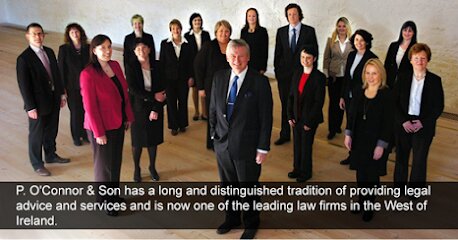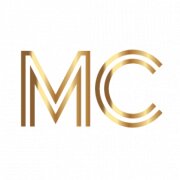Best Ethics and Professional Responsibility Lawyers in Ireland
Share your needs with us, get contacted by law firms.
Free. Takes 2 min.
Or refine your search by selecting a city:
List of the best lawyers in Ireland
About Ethics and Professional Responsibility Law in Ireland
Ethics and Professional Responsibility law in Ireland encompasses the standards and guidelines that govern the professional conduct of individuals in various professions, including legal practitioners, medical professionals, and other regulated entities. This area of law seeks to maintain the integrity, impartiality, and competence of professionals by ensuring adherence to established ethical codes. These standards are enforced by professional bodies that have the authority to discipline members who violate ethical rules.
Why You May Need a Lawyer
Individuals and organizations may require legal assistance in Ethics and Professional Responsibility for numerous reasons. Some common situations include allegations of ethical misconduct, needing advice on compliance with ethical codes, representation in disciplinary proceedings, and seeking guidance on potential conflicts of interest. Professional misconduct claims can significantly impact careers and reputations, making legal expertise crucial in navigating these challenges.
Local Laws Overview
In Ireland, local laws relevant to Ethics and Professional Responsibility are primarily governed by statutory regulations and professional bodies that establish specific codes of conduct. For the legal profession, the Legal Services Regulation Act 2015 serves as a key piece of legislation. It mandates compliance with ethical standards and establishes the Legal Services Regulatory Authority (LSRA) as an oversight body. Medical practitioners are regulated under the Medical Practitioners Act 2007, which enforces the ethical obligations overseen by the Medical Council of Ireland. These laws and bodies ensure that professionals adhere to high ethical standards to protect public interests.
Frequently Asked Questions
What are professional ethics?
Professional ethics are the personal and corporate standards of behavior expected by professionals in their line of work. They encompass principles such as honesty, integrity, accountability, confidentiality, and respect.
Who enforces ethical standards in Ireland?
Ethical standards in various professions are enforced by relevant professional bodies. For instance, solicitors and barristers are regulated by the Law Society of Ireland and the Bar Council of Ireland, respectively. Each profession has its regulatory body responsible for upholding ethical codes.
What happens if a professional breaches ethical standards?
If a professional breaches ethical standards in Ireland, they may face disciplinary proceedings conducted by their regulatory body. Penalties can include fines, suspension, or revocation of their license to practice.
Can a legal professional represent themselves in a disciplinary proceeding?
Yes, a legal professional can represent themselves in a disciplinary proceeding, although it may be wise to seek independent representation to ensure impartiality and effective advocacy.
How do I file a complaint against a professional for ethical misconduct?
To file a complaint against a professional for ethical misconduct, you should contact their regulatory body. The process typically involves submitting a formal complaint outlining the alleged misconduct and supporting evidence.
What is a conflict of interest, and how is it addressed?
A conflict of interest occurs when a professional's ability to act impartially is compromised by a personal interest. Regulatory bodies address this by requiring disclosure and, in some cases, recusal from certain duties to maintain integrity.
Are ethical standards the same across all professions?
While there are common principles in ethical standards across professions, each field often has specific codes tailored to its unique nature and responsibilities.
What role does the Legal Services Regulatory Authority play?
The Legal Services Regulatory Authority (LSRA) oversees the regulation of legal services in Ireland, enforcing compliance among legal practitioners and addressing complaints related to professional misconduct.
When should I seek legal advice for an ethical concern?
It is advisable to seek legal advice when facing a potential ethical concern, such as allegations of misconduct, uncertainty regarding compliance, or involvement in disciplinary proceedings to adequately protect your professional standing.
What reforms are influencing ethics and professional responsibility in Ireland?
Recent reforms in Ireland, such as those in the Legal Services Regulation Act 2015, emphasize transparency, accountability, and protection of client interests, reflecting ongoing efforts to modernize and enhance regulatory frameworks governing ethics.
Additional Resources
For further guidance on Ethics and Professional Responsibility in Ireland, the following resources and organizations can be beneficial:
- The Law Society of Ireland
- The Bar Council of Ireland
- The Medical Council of Ireland
- The Legal Services Regulatory Authority (LSRA)
- Citizens Information
Next Steps
If you need legal assistance in the area of Ethics and Professional Responsibility, consider taking the following steps:
- Identify the specific professional body regulating the professional you are dealing with.
- Consult with a qualified solicitor or barrister who specializes in Ethics and Professional Responsibility to evaluate your situation.
- Gather relevant documentation and evidence related to the ethical issue you are addressing.
- Engage a legal professional to assist in any necessary legal or disciplinary proceedings.
- Stay informed about your rights and obligations under the relevant ethical code and regulations.
Lawzana helps you find the best lawyers and law firms in Ireland through a curated and pre-screened list of qualified legal professionals. Our platform offers rankings and detailed profiles of attorneys and law firms, allowing you to compare based on practice areas, including Ethics and Professional Responsibility, experience, and client feedback.
Each profile includes a description of the firm's areas of practice, client reviews, team members and partners, year of establishment, spoken languages, office locations, contact information, social media presence, and any published articles or resources. Most firms on our platform speak English and are experienced in both local and international legal matters.
Get a quote from top-rated law firms in Ireland — quickly, securely, and without unnecessary hassle.
Disclaimer:
The information provided on this page is for general informational purposes only and does not constitute legal advice. While we strive to ensure the accuracy and relevance of the content, legal information may change over time, and interpretations of the law can vary. You should always consult with a qualified legal professional for advice specific to your situation.
We disclaim all liability for actions taken or not taken based on the content of this page. If you believe any information is incorrect or outdated, please contact us, and we will review and update it where appropriate.
Browse ethics and professional responsibility law firms by city in Ireland
Refine your search by selecting a city.












